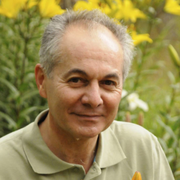- 08 Jun 2017
[CANCELLED] Evolution of Iran’s Foreign Policy in Central Asia and the Caucasus
Abstract
After the collapse of the Soviet Union the Iranian government looked to Central Asia and the Caucasus with interest. The Islamic Republic’s initial concern was not as much political or economic as it was cultural and religious. Iran’s perception of, and policy toward, that region has evolved over the past two decades and has gone through various stages. The first stage can be characterized by the belief that the peoples of Central Asia and Azerbaijan in the Caucasus would be inclined to go back to their historic roots and hopefully create their own Islamic states.
The second stage came with the realization that these peoples, and especially their governments, were not interested in turning their newly independent countries into Islamic states. This became increasingly apparent as diplomatic and commercial contacts between Iran and the region developed. Furthermore, Russia would not tolerate creation of such states in their former south.
Finally, the perception has evolved into a realistic one; the priority in the region should be given to maintaining peace and security, with an emphasis on economic and cultural cooperation. A very important aspect of this policy has been the recognition that Russia’s influence and interests in the region should not be ignored. Historically, Russia’s special relationship with Iran has been a product of Russia’s rivalry with Western powers than genuine mutual interests between the two neighbors. In the countries where Russia still wields considerable influence, it blocks Iran’s economic and political influence.
About the Speakers

Farhad Atai is Professor of regional studies at the Department of International Relations, University of Tehran. He holds a Ph.D. in Near Eastern Studies from UC Berkeley, 1992. Prof. Atai was honorary fellow at Harvard’s Center for Middle Eastern Studies in 2000-2001.
He has taught graduate courses and seminars on culture, politics, history, and economy of Central Asia, the Caucasus, and the Middle East regions. His works include “Turkey and Iran in Post-Soviet Central Asia” (Seoul, 2016); Political Science Chapter, Kara Encyclopedia, (Tehran, 2016); Studies on Central Asia and the Middle East (Tehran, 2014), “Saudi Arabia’s Foreign Policy; an Identity-based Realistic Strategy” (Tehran, 2013); “Soviet Cultural Legacy in Tajikistan” (Oxford, 2012); “The Energy Factor in Iran-Turkmenistan Relations”(Oxford, 2012); “Foreign Policy of Turkey’s AK Party in the South Caucasus”, (Tehran, 2012); “Dynamics of Bilateral Relations in the South Caucasus” (Princeton, 2009); Art and Culture in Post-Soviet Central Asia, 1995




